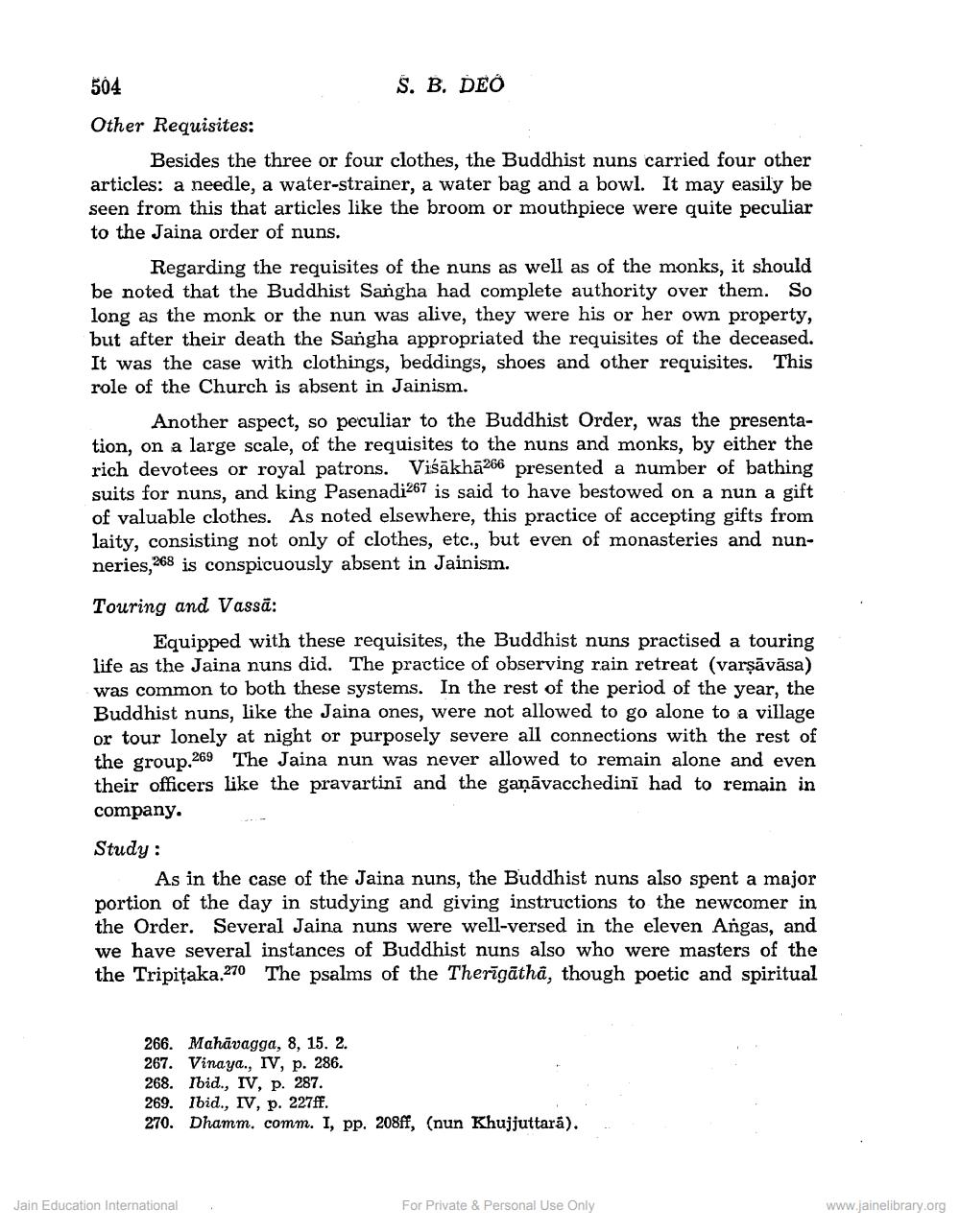________________
504
S. B. DEO Other Requisites:
Besides the three or four clothes, the Buddhist nuns carried four other articles: a needle, a water-strainer, a water bag and a bowl. It may easily be seen from this that articles like the broom or mouthpiece were quite peculiar to the Jaina order of nuns.
Regarding the requisites of the nuns as well as of the monks, it should be noted that the Buddhist Sangha had complete authority over them. So long as the monk or the nun was alive, they were his or her own property, but after their death the Sangha appropriated the requisites of the deceased. It was the case with clothings, beddings, shoes and other requisites. This role of the Church is absent in Jainism.
Another aspect, so peculiar to the Buddhist Order, was the presentation, on a large scale, of the requisites to the nuns and monks, by either the rich devotees or royal patrons. Višākhā266 presented a number of bathing suits for nuns, and king Pasenadi267 is said to have bestowed on a nun a gift of valuable clothes. As noted elsewhere, this practice of accepting gifts from laity, consisting not only of clothes, etc., but even of monasteries and nunneries, 268 is conspicuously absent in Jainism.
Touring and Vassā:
Equipped with these requisites, the Buddhist nuns practised a touring life as the Jaina nuns did. The practice of observing rain retreat (varsāvāsa) was common to both these systems. In the rest of the period of the year, the Buddhist nuns, like the Jaina ones, were not allowed to go alone to a village or tour lonely at night or purposely severe all connections with the rest of the group.269 The Jaina nun was never allowed to remain alone and even their officers like the pravartini and the gaņāvacchedini had to remain in company.
Study:
As in the case of the Jaina nuns, the Buddhist nuns also spent a major portion of the day in studying and giving instructions to the newcomer in the Order. Several Jaina nuns were well-versed in the eleven Angas, and we have several instances of Buddhist nuns also who were masters of the the Tripitaka.270 The psalms of the Therīgātha, though poetic and spiritual
266. Mahāvagga, 8, 15. 2. 267. Vinaya., IV, p. 286. 268. Ibid., IV, p. 287. 269. Ibid., IV, p. 227ff. 270. Dhamm. comm. I, pp. 208ff, (nun Khujjuttarā).
Jain Education International
For Private & Personal Use Only
www.jainelibrary.org




